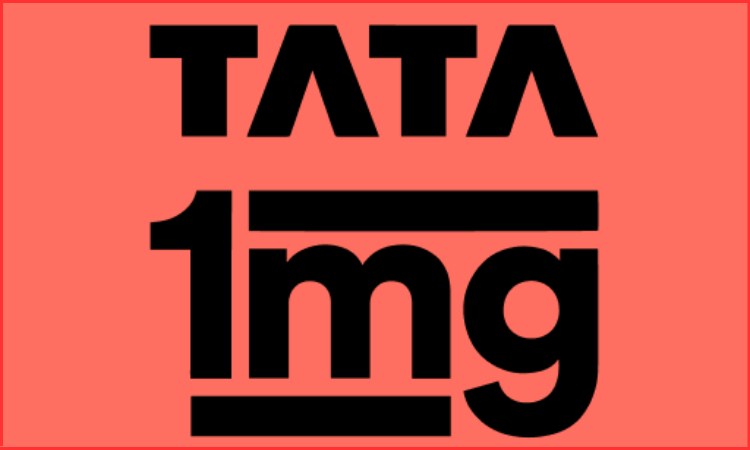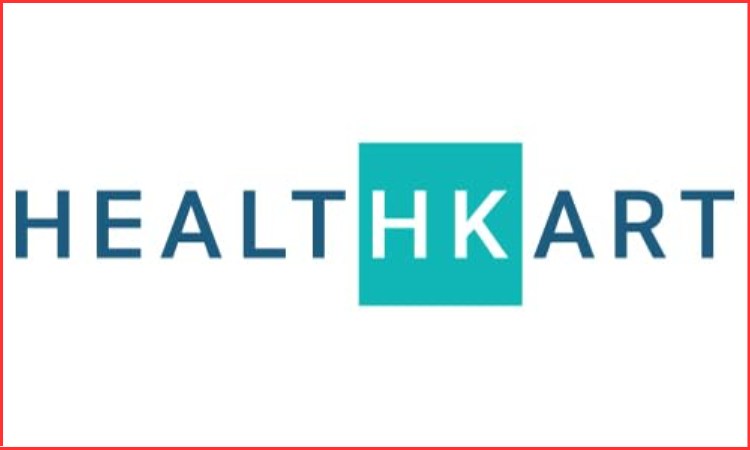
Over the years, there has been a phenomenal change in the healthcare space of India, primarily driven by the rapid emergence of HealthTech Startups in India. The challenges in the healthcare system became evident during the pandemic, like COVID-19, which highlighted the lack of preventive healthcare infrastructure—especially in rural areas—and a shortage of medical professionals. Today, with a new wave of startups leveraging technology to bridge these gaps, healthcare is becoming more accessible, affordable, and innovative.
By 2025, the Indian health-tech sector would have come a long way from the time when it raised $1.13 billion in 112 deals. Investor optimism in AI-enabled healthcare, digital health solutions, and telemedicine contributed to the blaze of renewal. The bigger healthcare market is also expanding rapidly, projected to reach $638 billion by 2026, up from $372 billion in 2023.
This growth is not limited to urban areas. A good number of health-tech startups sprouting up are coming from tier 2 and tier 3 cities; thus, the geography is quite distributed. The adoption and acceptance by consumers will mean that the sector will go to the next exponential growth phase, with forecasts pushing this figure to a market valued at $774 billion by 2030.
From AI diagnostic solutions to telemedicine platforms and wearable health devices, these startups are well placed to shape the future of healthcare into a higher quality scale. They will create convenient access to quality healthcare for even the poorest on a widespread basis. But what drives such rapid growth? What stands in the way? Dive deeper into the revolution unfolding on India’s healthtech stage.
Key Factors Driving the Growth of Healthtech Startups in India
Good Investment & Support
There is ever-increasing growth in the healthtech sector in India, receiving enabling ingredients from not only venture capitalists and accelerators but also very robust government initiatives. With this slowdown in funding for most sectors, early-stage healthtech startups have still been able to keep their heads high, showing a fairly good 26% YoY increase in funding. The increase truly spells volumes, as it indicates strong confidence by investors in the digital and AI-driven solutions that are fast flooding the medical technology field.
The government has acted as an important thrust for the forward momentum of such a sector. Its continued digitisation push in this regard creates an ecosystem within which startups can accelerate scaling. Its segments, such as the Health ID (UHID), Electronic Medical Records (EMR), etc., will greatly improve patient management by integrating into the healthcare ecosystem, even as they make data more available, secure, and actionable. Such activities will enhance operational efficiency while making seamless care across hospitals and clinics available for patients.
The healthtech sector in India will continue to grow steadily with financial assistance and a policy framework. The emerging startups, along with the investors and the government reforms, would usher in a more integrated, accessible, and tech-based healthcare system.
Rise in Demand for Telemedicine
There is a surge in telemedicine demand across India, as people turn to online consultations with doctors. Joining hands with the healthtech startups, today, patients in far-off areas can consult the doctors without having to travel long distances. Thus, healthcare becomes convenient and accessible to many.
Because of this transformation, the telemedicine market in India is projected to grow at a rate of 31% per year. Video consultations, online prescription generation, and digital health records are on their way to making medical care increasingly accessible and efficient.
With an ever-increasing user base supported strongly by the government, telemedicine is now an essential part of India’s healthcare system, providing that quality medical help is just a click away.
Patient-Centric Care
India’s health system has been struggling with a shortage of hospitals and medical staff for a long time, making it difficult to provide timely care. However, with the rise of digital healthcare solutions, this burden is decreasing, allowing a more patient-centred approach. More people are now choosing health services to reach online, making medical counselling and treatment more convenient and inexpensive.
Additionally, modern insurance and healthcare platforms are promoting a more holistic approach not only to physical health but also to mental welfare. This preventive approach is helping to reduce the entry into the hospital, ensuring that this patient care is reserved for those who need it. With the reshaping of healthcare with digital innovations, the patients are now in the centre of the system, which is providing care that is more accessible, skilled and conforming to their needs.
Top 5 HealthTech Startups in India
| Sr. No. | Top 5 HealthTech Startups in India | Founding Years |
| 1 | 1 mg | 2013 |
| 2 | HealthifyMe | 2012 |
| 3 | NetMeds | 2010 |
| 4 | HealthKart | 2011 |
| 5 | MediBuddy | 2013 |
1 mg

Image credit: Google Play
Founded in 2013 and based in Gurugram in Haryana, 1mg started as HealthKartPlus, a platform that provided medicine-related information and was immensely popular. It soon moved into medicine delivery and grew into one of India’s fastest-growing healthtech unicorns.
1mg focuses on pharmaceuticals, lab tests, and doctor consultations. Users can order prescription and over-the-counter medicines, book diagnostic tests, and consult doctors in person and online.
Beyond medicines, healthcare products such as supplements, medical devices, and personal care are made increasingly available and accessible once again because of 1mg. Access information about them on 1mg’s site.
HealthifyMe

Image credit: entrackr
HealthifyMe was conceived in 2012 in Bangalore, Karnataka, and is indeed the largest digital health and wellness company in India. The platform helps individuals set health-related goals using personalised diet plans, calorie tracking, and guidance toward fitness. Furthermore, it has launched health advancement tracking equipment like glucose monitors and smart scales, which further propels individuals in tracking their progress.
They provide a free subscription model for important features wherein whenever the users require expert nutrition and fitness advice, they can switch to premium subscription services. Besides, the company also collaborates with leading healthcare institutions like Medanta, Apollo Hospitals, and Manipal Hospitals in addressing major health issues like obesity, diabetes, and heart diseases.
Most recently, HealthifyMe has raised $30 million in pre-Series D funding to keep scaling its AI-powered health solutions under investors like LeapFrog, Khosla Ventures, FinnFund and Van Lanschot Kempen.
NetMeds

Image credit: Business park centre
Established in 2010 in the city of Chennai in Tamil Nadu, Netmeds is at the forefront of India’s e-pharmacies, serving prescription medicines, over-the-counter drugs, health products, and medical devices. The platform lists around 35000+ SKUs, thereby ensuring that essential healthcare is provided in an affordable and hassle-free manner.
Medications can be easily viewed and ordered online to be delivered to the customer’s doorstep anywhere in India. NetMeds connects their online services with offline ones, allowing customers to receive medications without ever visiting a pharmacy. Simplifying healthcare access for millions by diversifying the range of healthcare products being offered, NetMeds continues its pursuit of making healthcare convenient and accessible.
HealthKart

Image credit: Startup Talky
HealthKart was established in 2011 and currently operates out of Gurugram, Haryana, as India’s very largest online platform, mainly focusing on health and nutrition products. Some of the products offered include whey proteins, multivitamins, weight gainers, and fat burners from leading brands along with herbal supplements.
MuscleBlaze and HK Vitals, HealthKart’s exclusive brands, are two of the most sold sports nutrition and vitamin brands in India. Apart from these, the site also includes acclaimed national and international brands like GNC, Herbalife, ON, and MyProtein.
By user-friendly applications, checkouts secure their availability through 1mg, Amazon, and Flipkart. HealthKart makes it very easy for customers to access all the authentic products of wellness.
MediBuddy

Image credit: Brandequity
The MediBuddy Company, which is in the cashless health sphere and gives access to doctors, e-pharmacy, and diagnostics all around the clock, was founded in 2013 and is in Bangalore, Karnataka. Users can consult specialists in over 22 disciplines, including gynaecology, mental health, dermatology, and cardiology, in 16 vernacular languages.
Gold Membership gives users and six family members unlimited online consultations. MediBuddy also provides wellness tests, full-body packages, and blood collection. Recently, the company raised $18 million, with the support of its investors Quadria Capital, Lightrock, and TEAMFund, to extend its healthcare services.
Major Issues HealthTech Startups Are Facing in India
Lack of Healthcare Infrastructure
India’s rural healthcare system is quite inadequate in terms of available facilities; hence, it becomes difficult for health-tech start-ups to reach and serve these underdeveloped regions. Limited ways and resources make it challenging, but widening the horizons to digital healthcare solutions could solve the problem, making affordable and accessible medical services available to millions of expectants.
Data Privacy & Security
One of the most critical things for healthtech startups is the handling of sensitive patient data. This makes data privacy and security a cardinal priority. Therefore, data protection laws are obligatory to them, strong security measures are to be mandatorily adopted, and unauthorised accesses or data breaches have to be prevented. For a better pattern of integrated strategies, they should adopt both preventive and combative strategies to keep itself secured and protected from cyber threats in patient information.
Funding & Investments
The healthtech domain of India has witnessed a funding dip in 2023; however, the startups are resilient and are still expected to grow in hiring by around 15-20%. There is a sustained transformation in healthcare through technology – from telemedicine to e-pharmacy. It is anticipated that from a market value of USD 10.6 billion in 2022, it would grow to USD 21.3 billion in 2025; hence, the future seems fairly bright.
Conclusion
Healthtech startups have changed a lot in India. They have made medical services more accessible and affordable and improved the efficiency of services. This includes many applications like 1mg, NetMeds, HealthifyMe, HealthKart, and MediBuddy, which are leading innovations in teleconsultation, e-pharmacy services, diagnostics, wellness products, and digital healthcare solutions.
This sector continues to grow with rising investments, government support, and new technology. These healthtech solutions are addressing some of the most crucial gaps in the sector while improving patient care. The expansion that these startups will show will be huge, and thus they will be responsible largely for changing the face of healthcare in India – making quality medical services available to everyone.















